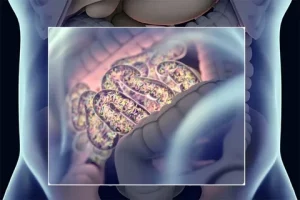Deciphering the Causes of Excessive Gas Excessive gas, though a common phenomenon, might indicate underlying health conditions. Let’s explore the multifaceted aspects of what causes this phenomenon. Understanding Typical Gas Levels Research suggests that, on average, individuals produce around 0.6 to 1.8 liters of gas daily. The typical person may pass gas approximately 12–25 times
Deciphering the Causes of Excessive Gas
Excessive gas, though a common phenomenon, might indicate underlying health conditions. Let’s explore the multifaceted aspects of what causes this phenomenon.
Understanding Typical Gas Levels
Research suggests that, on average, individuals produce around 0.6 to 1.8 liters of gas daily. The typical person may pass gas approximately 12–25 times a day, with the highest activity occurring during sleep.

Image by: yandex.com
Conditions Leading to Excessive Gas
- Irritable Bowel Syndrome (IBS): IBS affects the gastrointestinal (GI) tract, leading to symptoms like abdominal pain and changes in bowel movements. Excessive gas may result from altered gas movement in the intestines. Treatment involves diet changes, medications, and mental health therapies.
- Inflammatory Bowel Disease (IBD): Encompassing conditions like Crohn’s disease and ulcerative colitis, IBD can impact food absorption and trigger lactose intolerance, thereby increasing gas production.
- Celiac Disease: An autoimmune disease causing damage to the small intestine, celiac disease manifests with symptoms such as gas, bloating, abdominal pain, diarrhea, and fatigue.
- Food Intolerances: Lactose and fructose intolerances can lead to difficulty digesting specific carbohydrates, resulting in gas, bloating, diarrhea, and abdominal pain.
- Stomach Ulcers: Sores on the abdominal lining or the first section of the small intestine can cause excess gas, along with symptoms like abdominal pain, nausea, and vomiting.
- Small Intestinal Bacterial Overgrowth (SIBO): An excess or change of bacteria in the small intestine can produce additional gas, accompanied by symptoms like bloating, abdominal pain, and, in rare cases, malabsorption.

Image by: yandex.com
Strategies for Managing Excessive Gas
Practical Tips to Reduce Gas
Efforts to minimize gas production include:
- Avoiding chewing gum and hard candy.
- Reducing carbonated or fizzy drinks.
- Mindful eating and quitting smoking if applicable.
Dietary Adjustments
Identify and manage foods contributing to increased gas:
- Limiting consumption of sugar-free products, high-fiber foods, cruciferous vegetables (broccoli, cabbage, kale, cauliflower), and legumes.
- Individuals with specific conditions may need to eliminate gluten, lactose, or fructose from their diets.
Medical Intervention
In cases of severe symptoms or underlying health issues, medical intervention may involve:
- Recommendations for supplements or medications by a healthcare professional.

Image by: yandex.com
When to Seek Medical Attention
Recognize the signs indicating the need for medical consultation:
- Excessive gas significantly impacting daily life.
- Sudden changes in symptoms.
- Additional symptoms like abdominal pain, diarrhea, constipation, or unintentional weight loss.
Conclusion:
Excessive gas, while a natural part of digestion, warrants attention when it becomes a persistent issue. By understanding the diverse causes and adopting a holistic approach, individuals can effectively manage and alleviate the symptoms, ensuring optimal digestive health. If in doubt, consulting a healthcare professional is key to uncovering the root cause and establishing an appropriate treatment plan.

















Leave a Comment
Your email address will not be published. Required fields are marked with *